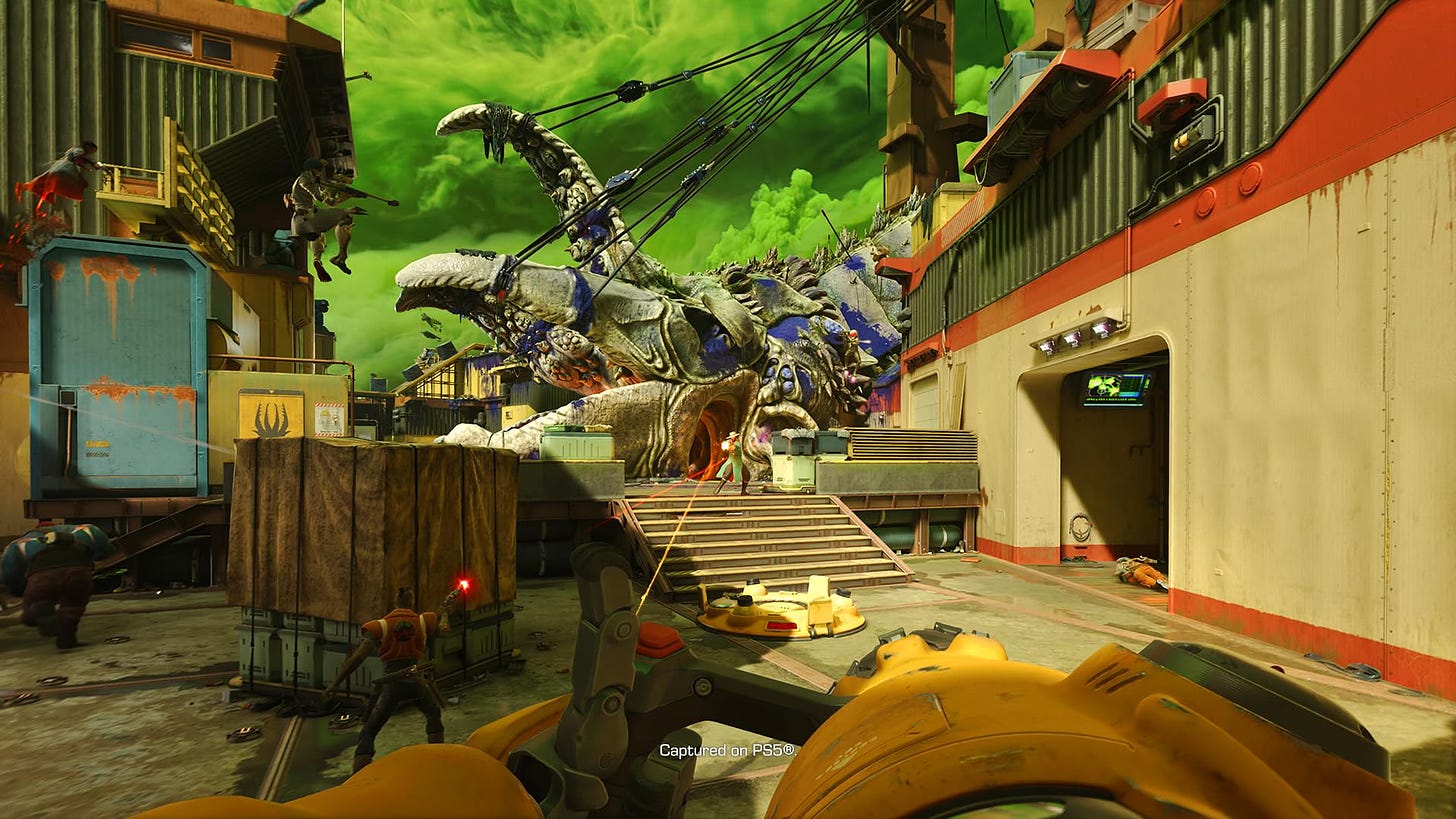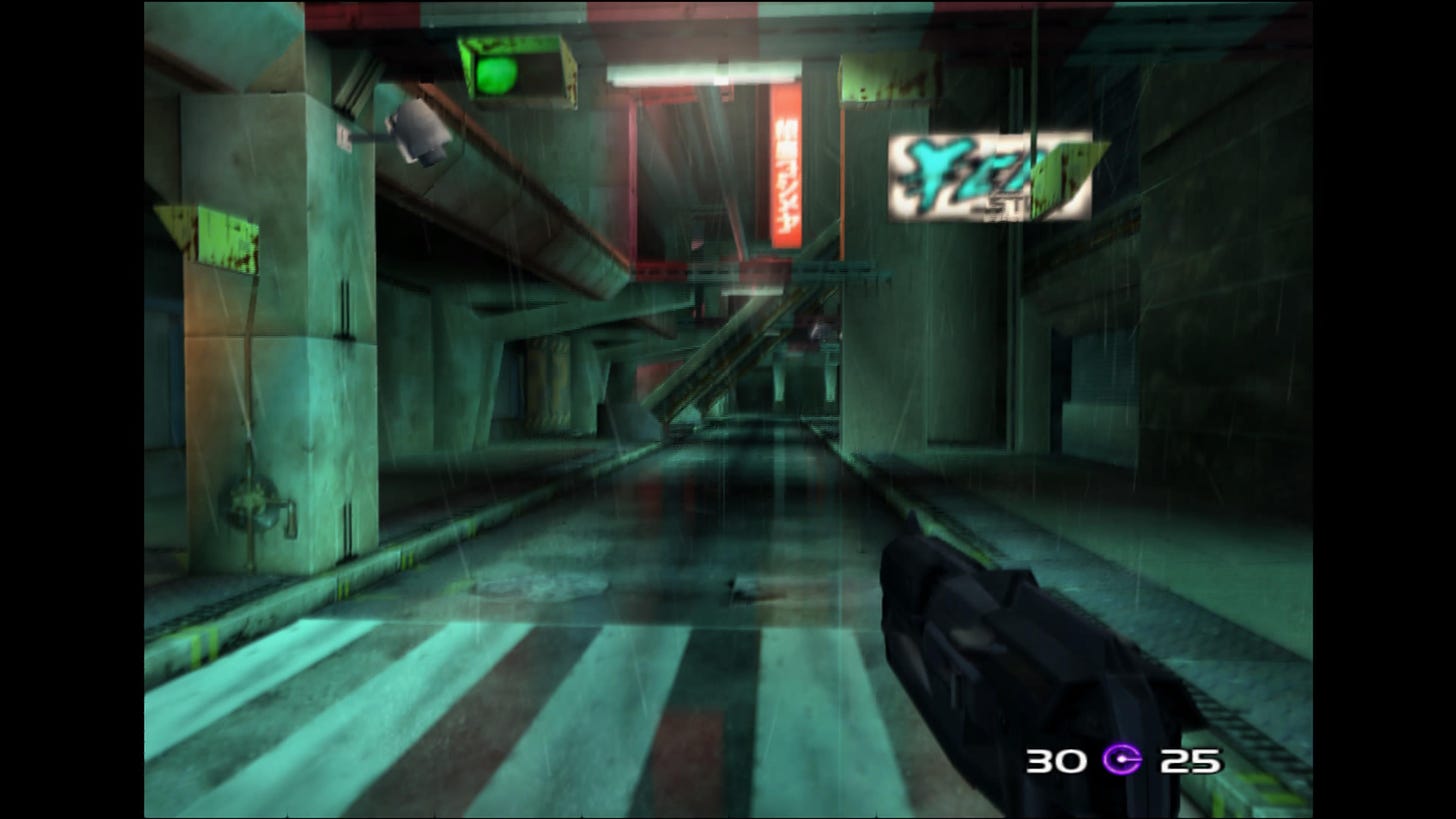By killing Concord early, Sony could be bringing forward its redemption arc
Will the short-lived shooter become the next example of what is an increasing trend in major gaming releases?
Editors’ note: On October 30 2024, Sony announced the closure of Firewalk Studios and has permanently “sunsetted” Concord. This piece was written as a jumping point to discuss the premise that comebacks in the video game industry are possible and have precedence, but it was not the case this time.
It took over eight years and a reported 150 staff to build, and just under two weeks to apparently decide to throw it in the bin.
Last week, Sony shocked the global gaming community with its sudden decision to remove its new shooter, Concord, from sale and refund all those who purchased it. What's more, there was nothing actually wrong with the game. While others have been pulled due to a high level of glitches—usually to the point of being unplayable—or being oversold to players during the pre-launch promotional process, Concord seemed fine.
By all accounts, Concord was adequate, albeit a little uninspiring in a sea of team-based shooter games with entrenched player bases. (Substacker Ryan K. Rigney's Push to Talk has an excellent summary of the reaction to the game.)
Its launch figures, however, were far from flattering, with fewer than 700 players playing the game via Steam at launch. For contrast, according to Forbes, another lacklustre shooter from earlier this year, Suicide Squad: Kill the Justice League, launched with 13,000 concurrent players.
It cannot be overstated how devastating this is for Concord's creators, the team at Firewalk Studios, who have now had years of work erased by one business decision. Some of its team members were publicly mourning the game as it went offline on Friday.
Gaming is unique in that there is no other product or industry that would tolerate such a drastic reversal of an eight-year strategy. For something to be pulled from the market elsewhere it would need to either endanger lives or cause grievous offense or harm. Concord was seemingly axed because it didn't reach a critical mass of players needed to sustain the game, with apparently no appetite from Sony to grow it over time.
But there's a broader trend here that's worth pointing out. Concord is by far not the first game to fail at launch, and in this industry, initial failure is far from the end for most games. There's a trend towards titles redeeming themselves after they didn't clear the bar on their debut—even if they've been taken offline. By killing Concord early, Sony may be expediting a hard-won, but possible, redemption arc to success.
If at first you don't succeed, patch, and patch again
The most notable example in recent memory is Cyberpunk 2077—an open-world shooter role-playing game based in a dystopian future powered by cybernetics. It launched in December 2020 with a number of bizarre bugs and game-breaking glitches unbecoming of the same studio that produced the smash hit Witcher series years earlier. Weeks after launch, Sony pulled it off the PlayStation store and issued refunds as a form of quality control. Developer CD Projekt Red, which is listed on the Warsaw Stock Exchange, saw its stock tank. There was a near recall of the game and an apology from the developer.
When the tirade died down, CD Projekt Red got to work. It gradually patched and improved Cyberpunk, generating a new wave of hype with each update of the game given the media storm it created with its launch. After a whopping 24 software updates, the game went on to earn an estimated $770 million, the Wall Street Journal reports, more than offsetting the $300 million it spent developing a game that at launch seemed destined for failure.
The same could be said of No Man's Sky, another quintessential redemption story of gaming. It's essentially a space travel simulator where you craft items from resources gathered on various planets. It was an ambitious indie title that turned heads at the time, winning the 2015 Game Award for Most Anticipated Title.
Developer Hello Games launched the title the following year to almost universal criticism after the game was hyped beyond belief from its marketing campaign, only for players to find they could do a fraction in-game of what was actually promised. Hello Games didn't pull No Man's Sky but quietly iterated on it over a decade, gradually adding new features. Slowly but surely, it won back gamers. It won another Game Award in 2020, this time for Best Ongoing Game.
Beyond these two games, there are plenty of other examples. In the MMORPG (mass-multiplayer online role playing game) arena, Final Fantasy XIV, Destiny and Fallout 76 stumbled at launch and now operate successful games following years of iteration and a 'relaunches' of sorts. All have also fully capitalised on a redemption arc narrative that's buoyed ongoing attention and interest in the games.
Not the last we've heard of Concord?
Back to Concord, there's no clear indication on its future. Sony's own blog post on the matter (and its only media comment on it too) is opaque. In announcing the long-rumoured PS5 Pro this week, the gaming giant seems keen to move its media agenda on to greener pastures.
But given the buzz its closure has generated, Concord could pull off a comeback. And while gaming does defy reality in its own business bubble, where the rules of other industries don't apply, throwing away eight years of work and likely hundreds of millions in funding seems foolhardy at best and tragic at worst.
By suddenly pulling it from purchase, Sony created more attention and hype for the game than it had ever had before its launch.
The only problem with a redemption arc: You actually need to meet the bar for redemption. And in the online shooter genre, full of decade-old but still going strong games with rusted-on player bases, that's quite the ask.
What do you think about the future of Concord? Am I dead wrong here? Is it finished? And are there any other major gaming redemption stories that I've missed? Let me know in the comments.
What I'm Playing: TimeSplitters 2
Shooters used to be a simpler genre. Online play was possible, but it took a backseat to the split-screen multiplayer or single-player content. Today, that's flipped. It's all about beating down your fellow player online with headshots and chain kills, possibly a missile strike for good measure.
With days left before my PlayStation Membership renewed, I bumped it up a tier to Deluxe for a grand total of 60c for two weeks, and given I had shooters on the brain, booted up an oldie but a goodie: TimeSplitters 2.
It's a really basic premise. An alien race—aptly named Timesplitters—are using a time machine to travel back in time and wreck human history in all sorts of bizarre ways. You play as Sergeant Cortez, a space marine, tasked with travelling the timeline and rectifying whatever stunt they've pulled. And boy, have they pulled some stunts. By simply putting all-powerful time crystals in the hands of humans across the timeline, they've created cults, wars, and plenty of science experiments gone wrong.
The settings here are incredibly unique. In one level, you are shooting up 1930s gangster-riddled Chicago with tommy guns; in the next, you're infiltrating a death cult that's occupying Notre Dame and using time crystals to raise the dead in the 1890s. A personal favorite of mine is NeoTokyo, a level set in 2019 that features a sci-fi laser pistol. The developers of this game—which was released in 2002—had bold hopes for the future.
The PS4/PS5 updated version of the game also allows you to rewind gameplay. For someone who really struggles with shooters (like me), this is a great way to get through the game on higher difficulties. That's crucial here, as one way they boosted the replayability of TimeSplitters 2 is to change the level depending on what difficulty you are playing. Easy mode levels have fewer objectives and are generally shorter. Want the full experience? You need to play on Normal or Hard to see the full level.
TimeSplitters 2 is also known for its arcade modes. These are challenges set on multiplayer levels where you face off against bots with a unique set of circumstances. I'm personally here for the campaign, but there are plenty of fans for this mode alone, so I'd be remiss not to mention it.
Much like prior games that have stuck with me, the soundtrack in TimeSplitters 2 is also quite good and has a number of covers of it online. The music almost always matches the mood of the level, and given they are so diverse, that's quite an achievement in itself.
My only gripe by modern gaming standards is that it's really hard to swap weapons in TimeSplitters 2. Many modern shooters solved this by only allowing you to equip two at a time, enabling you to quick swap between them. The rebooted Doom series introduced a weapons wheel that allowed for versatile arms swapping mid-game. TimeSplitters 2 sees you hoard weapons, cycling through all of them to find the gun you want. But it's not ideal when bullets are flying and you are out of ammo.
And if you've played any modern shooters, the game will feel clunky. So much of this genre is about the small things: the feel of the controls, the ease and responsiveness of the aiming, the balance between assisting the player with small things like auto-aim but not overdoing it to detract from their own skills.
Mechanically, there are better shooters that exist today. It's a type of game that really doesn't age well. But if you're on a nostalgia trip like me, you're willing to forgive all of that for memory's sake.
Worth trying if you like: Doom, the Call of Duty series, Deathloop.
Available on: PlayStation 4, PlayStation 5, Xbox Game Pass.
Hey! You made it to the end. Thanks for reading this edition of Infinite Lives.
If you are enjoying this newsletter, help me grow its reach by sharing Infinite Lives with your friends or networks. Seeing one new subscriber a week not only keeps me motivated to keep going but to produce better stories too!






I think Concord's failure is different than other examples because it shows the niche it targeted is oversaturated. There are many games that fail spectacularly due to the same reason. We just don't see them because they tend to be smaller (just look at all the Vampire Survivors clones).
I heard more about the game being taken off online that I did about its gameplay. That, and all the "woke" arguments around it. For me, it just didn't look interesting, and because it's a hero shooter I thought it was gonna be free, but it wasn't. Plus, with Marvel Rivals coming out, I'm not sure if Concord will be coming back any time soon.